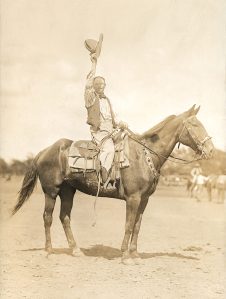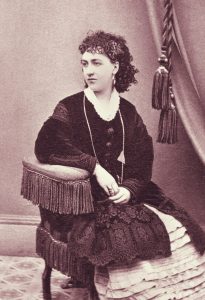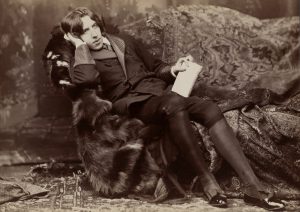Asked to present a paper on the 1862 Shenandoah Valley Campaign at a Civil War Roundtable some years ago, National Park Service historian Donald Pfanz initially planned to focus on Southern General Turner Ashby rather than Ashby’s counterpart, Richard Ewell. But he soon became intrigued by the man most often blamed for the South’s loss at Gettysburg in July 1863—for “failing” to take Cemetery Hill the first day of the battle. In 1998 he penned the definitive biography of the much-maligned general, Richard S. Ewell: A Soldier’s Life, and last year he edited The Letters of General Richard S. Ewell: Stonewall’s Successor. Like his father, Gettysburg chief historian Harry W. Pfanz, Donald made a career in the park service, retiring this spring after 32 years—the last 22 at Fredericksburg & Spotsylvania National Military Park. Though he admits he still hasn’t managed to sell most of his colleagues on Ewell (“You just can’t shake the views some people have grown up with”), Pfanz is adamant that Ewell was not at fault for Gettysburg, and overall was a “pretty darned good general, one of the Confederacy’s best.”
Why has history been so unkind to Ewell’s memory?
It comes in part from some of Ewell’s associates writing to justify their own conduct in the war. Jubal Early and Isaac Trimble both said some negative things about him after he had died and couldn’t defend himself, and John B. Gordon wrote one of the most self-serving memoirs I can think of. It also came from soldiers who saw that the Confederacy suddenly wasn’t winning and were trying to figure out why. They had won under Stonewall Jackson—and of course Longstreet and Lee couldn’t be blamed—so it had to be Ewell. Douglas Freeman didn’t help either. He echoed Early and others in writing that Ewell was indecisive, incapable of independent command.
What about the generally unfavorable opinion people have of Ewell?
I don’t want to pretend that Ewell didn’t make his share of mistakes— in fact after the war he supposedly commented that it took a good dozen blunders to lose Gettysburg and he had made several of them. No one would argue he had a flawless battle, but when you look at what he did as a corps commander, his record is pretty outstanding. At Second Winchester, his very first battle, he basically pried Robert Milroy’s command out of that strongly fortified town with few losses and captured a good bit of Milroy’s command. He then led the march to Harrisburg, gathering supplies for the Army of Northern Virginia. On July 1 [at Gettysburg], he routed the Union army, capturing 3,000 to 4,000 prisoners. But he’s criticized for that sole decision to not attack Cemetery Hill. He did want to take that hill, but he wanted to do it in the least bloody way possible, which was to take Culp’s Hill first. He gave [Maj. Gen. Edward] Johnson orders to do that, but he had to wait for Johnson’s division to come up. Because of a misunderstanding of orders, Johnson didn’t take the hill—he kept waiting for another order from Ewell, and it never came. It was just the typical confusion of battle that ultimately resulted in Ewell not being able to seize those hills.
What were some of his successes?
In the 1862 Valley Campaign, he was brilliant in all those battles—he was literally Stonewall’s main weapon. His troops were the ones responsible for the victories, and Ewell was personally the one on the field leading the way. At Gaines’ Mill, he showed unbelievable bravery holding his position as reinforcements worked their way to the front. He was magnificent at the Wilderness holding back 21/2 Union corps with his one corps, but he never gets any credit for it—in fact, Gordon claims in his self-serving memoir that he told Ewell to make a flank attack and Ewell wouldn’t because he was indecisive.
Did his men love him?
Ewell didn’t have the following some of the others had. Some generals were gallant and looked the part, but he didn’t. He rode a flea-bitten horse, looked flea-bitten himself. In battle, he often cursed and was excitable. He wasn’t the sort you’d look at and say, “There’s a great general,” and cheer as he rode by. But he was extremely competent, always energetic. On the frontier before the war, he was in the saddle sometimes for weeks at a time, riding hundreds of miles, chasing down Indians. During the war, it was the same: never any complaints about him from an administrative standpoint. He was very devoted to duty. At Fort Harrison, while riding with Lee, he bashed his head when his horse slipped. Lee says, “General, go to the rear and take care of yourself.” A couple of hours later, he’s right back in the field, looking like a mummy, his head wrapped in bandages. Same thing at Mine Run: He goes to Charlottesville to have his false leg replaced, but when he hears there’s a battle brewing at Mine Run, he rushes back because he knew it was his duty. Even though he had a distaste for war and its carnage—as he wrote once to his niece, “Nobody could ever like to see the mangled forms of men out on the battlefield”—the excitement of battle attracted him. He always wanted to do his part.
Did you find Ewell’s letters revealing?
Reading his letters gives you a better feel for his personality. One of the things that comes across is that not only does he have a quirky sense of humor, but he’s also a practical, common-sense sort of officer. He called things as he saw them—he may not have been a brilliant man, but he had more common sense than a lot of officers on either side. He had very good military judgment and a good eye for terrain. He also had great intuition. For instance, before the explosion at the Petersburg Crater [July 30, 1864], he wrote to his wife, Lizinka, saying how he had a strange feeling that the Federals were going to do something unexpected, something never tried before—and that very day they exploded dynamite in a mine under their lines.
Did losing his leg at Second Manassas and his marriage to Lizinka in 1863 change Ewell?
A lot of people focus on a quote by Eppa Hunton, saying Ewell was not the same man after his wounding and his marriage than he was before, when he was a whole man and a single one. One of those who picked up on that quote by Hunton—who, by the way, didn’t even fight under Ewell for most of the war—was Douglas Freeman, and as I’ve said, once Freeman accepts it, the world accepts it. Several changes come into Ewell’s life at that time. His marriage, of course, was the primary one. But I don’t believe he was more cautious and eccentric when he returned. He was already, I think, by 1862 becoming more religious. He had grown up in a reasonably religious household but had been an officer on the frontier, and like a lot of people who are out in the middle of nowhere with a bunch of soldiers, tended to start becoming profane. But I think once he got back to the East during the Civil War—thanks in part to Lizinka’s influence, and also due to Jackson and other people in the army—he was starting to once again be drawn toward God. He does seem to be much more outspoken in his faith, at least in his pronouncements, than he was before. But I don’t think that affected him as a general at all. I think he’s the same person in ’63-’64 that he was in ’61-’62.
As a native of Gettysburg, do you think it was inevitable the war would be a big part of your life?
My love of history, specifically military history, comes largely from growing up amid all the cannons and monuments there. It was great having a father who was the historian at Gettysburg, who would take us to other battlefields and parks. But until I got a job with the park service, my interest was the Revolutionary War; getting a job in a Civil War park turned me into a Civil War historian. I loved growing up in Gettysburg. My brother and friends and I would run around the battlefield playing war. We’d climb on the cannons along Cemetery Ridge (they weren’t as strict about it those days) and see the stone walls and all the monuments with the heroic figures on them. In the summer I would go with my dad when he did slide shows for the tourists at this little amphitheater they had—a wonderful little program on the battle. It was very stirring; it really fired your imagination.
Originally published in the August 2013 issue of Civil War Times. To subscribe, click here.




